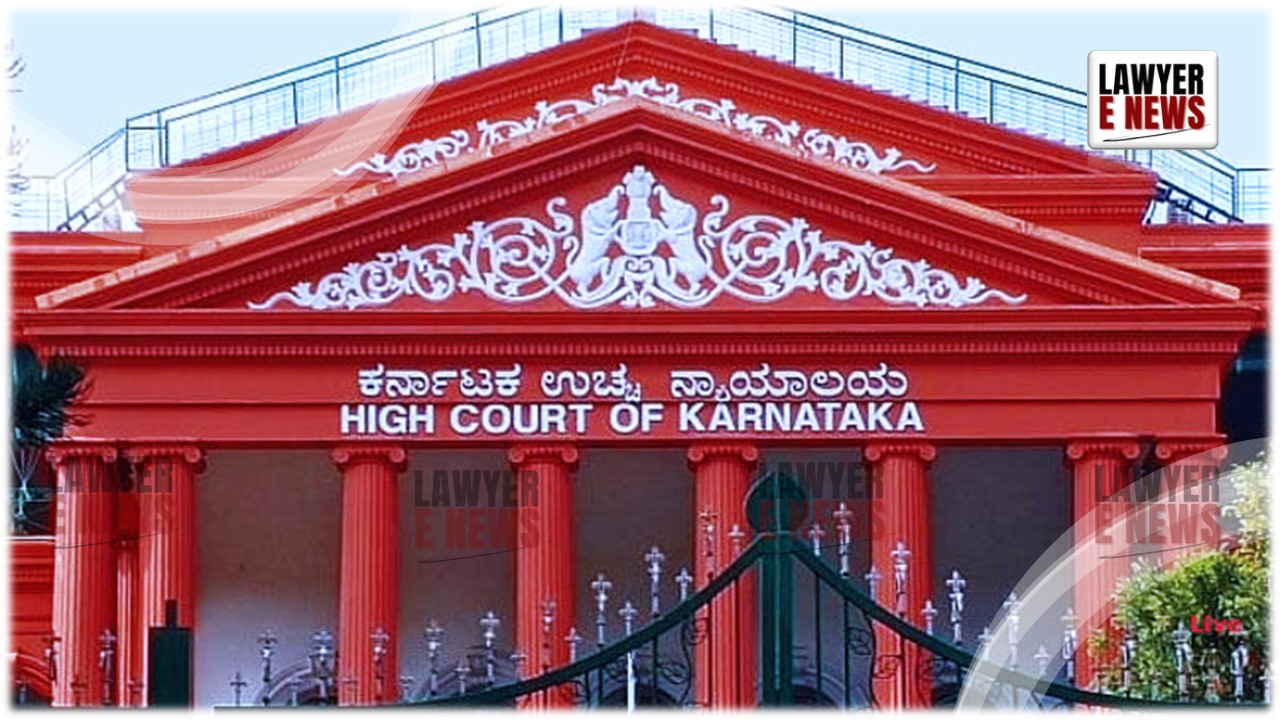-
by Admin
15 February 2026 5:35 AM



"Failure to comply with the statutory mandate under Order 39 Rule 3 CPC renders an ex parte injunction unsustainable. Courts must assign specific reasons for dispensing with notice," observed the Karnataka High Court while allowing an appeal challenging an interim injunction granted in a membership dispute.
Karnataka High Court set aside an ex parte temporary injunction granted by the 41st Additional City Civil and Sessions Judge, Bengaluru, which had restrained Bowring Institute from holding a General Body Meeting (GBM) scheduled for November 29, 2024, to ratify the expulsion of the plaintiff from its membership.
“Non-Compliance with Order 39 Rule 3 CPC Invalidates Ex Parte Injunction”
The dispute arose after the plaintiff (Respondent No. 1), a life member of the Bowring Institute, was accused of violating club rules by using the swimming pool during restricted hours. Following a disciplinary inquiry, the Managing Committee recommended his removal on October 7, 2024, subject to ratification by the GBM.
The plaintiff filed a suit seeking: A declaration that the show cause notice dated July 20, 2024, the disciplinary committee’s recommendations dated October 5, 2024, and the Managing Committee’s resolution dated October 7, 2024, were null and void.
A temporary injunction to prevent the GBM from considering the recommendation.
The Trial Court granted an ex parte temporary injunction on November 22, 2024, stating that the plaintiff had made out a prima facie case but failed to assign reasons for dispensing with notice, as required under Order 39 Rule 3 of the Code of Civil Procedure (CPC).
The Bowring Institute challenged the order before the Karnataka High Court, arguing that the Trial Court had violated the mandatory requirements of Order 39 Rule 3 and that the injunction was granted prematurely, as the GBM had not yet taken place.
Justice H.P. Sandesh, presiding over the matter, identified two critical issues: (1) whether the appeal was maintainable under Order 43 Rule 1(r) CPC, and (2) whether the Trial Court had erred in granting the injunction without recording specific reasons.
The High Court held that the Trial Court failed to comply with the statutory mandate under Order 39 Rule 3 CPC, which requires courts to:
Assign specific reasons for granting an ex parte injunction without notice.
Satisfy itself that delay in issuing notice would defeat the purpose of granting the injunction.
Justice Sandesh observed: "The word ‘shall’ in Order 39 Rule 3 CPC makes it mandatory for the court to record its reasons for dispensing with notice. A mere reference to materials on record, without more, does not satisfy this requirement."
The Court emphasized the principle laid down by the Supreme Court in Shiv Kumar Chadha v. Municipal Corporation of Delhi, (1993) 3 SCC 161, that courts must exercise extreme caution while granting ex parte injunctions. The judgment noted:
"The courts have to be more cautious when this power is being exercised without notice or hearing the affected party. That is why Rule 3 requires that the court shall, before granting an injunction, direct notice of the application to the opposite party, except where the object of granting the injunction itself would be defeated by delay."
The High Court also found that the relief sought by the plaintiff was premature, as the GBM had not yet taken place and no actionable grievance had crystallized. The Court remarked:
"The plaintiff’s claim that the General Body would ratify his expulsion is speculative. Relief cannot be granted merely on anticipation of an adverse outcome. The Trial Court should have considered that no cause of action had yet arisen for granting the injunction."
Justice Sandesh further noted that the suit sought reliefs against prior actions, such as the show cause notice and disciplinary committee’s recommendations, which were merely preparatory steps. The GBM’s decision would have determined whether the plaintiff’s expulsion was ratified, making the plaintiff’s claims premature.
Maintainability of Appeal Under Order 43 Rule 1(r) CPC
The respondent argued that the appeal was not maintainable, as the proper recourse was to file an application under Order 39 Rule 4 CPC to vacate the injunction. However, the High Court rejected this contention, holding:
"When there is a clear violation of the procedural mandate under Order 39 Rule 3 CPC, an appeal is maintainable under Order 43 Rule 1(r). The statutory requirement of assigning reasons for granting ex parte injunctions cannot be ignored."
The Court distinguished earlier judgments, such as M/S Parijatha v. Kamalaksha Nayak (1981 ILR Kar 1019), which held that ex parte orders could only be vacated under Order 39 Rule 4. It clarified that procedural violations under Order 39 Rule 3 allow for appellate scrutiny.
The High Court allowed the appeal and set aside the Trial Court’s ex parte injunction order dated November 22, 2024. It directed the Trial Court to reconsider the plaintiff’s application for a temporary injunction on merits within 30 days, while noting that the High Court’s interim order permitting the GBM to proceed would remain in force until the Trial Court’s decision.
The judgment concluded: "The Trial Court’s failure to assign reasons for dispensing with notice renders the order unsustainable. Procedural compliance under Order 39 Rule 3 CPC is not a mere formality but a fundamental requirement to ensure fairness and transparency in the judicial process."
The Karnataka High Court’s ruling underscores the importance of strict compliance with procedural safeguards in granting ex parte interim injunctions. It reinforces the principle that courts must assign specific reasons for dispensing with notice, ensuring that such orders are not issued arbitrarily or prematurely.
Date of Decision: December 20, 2024
